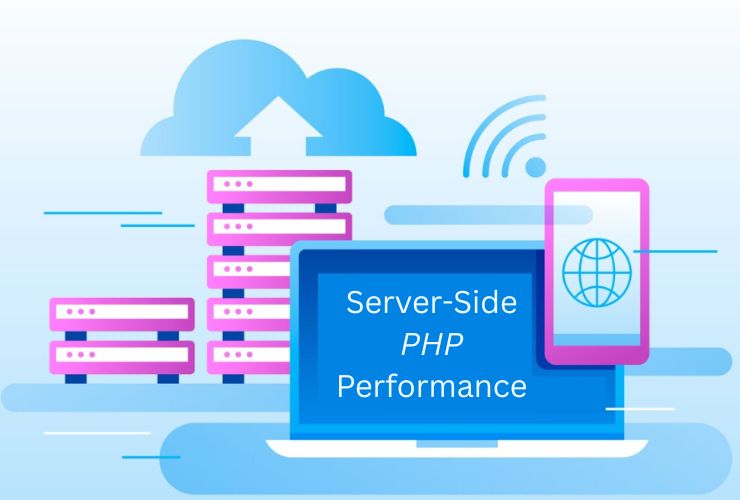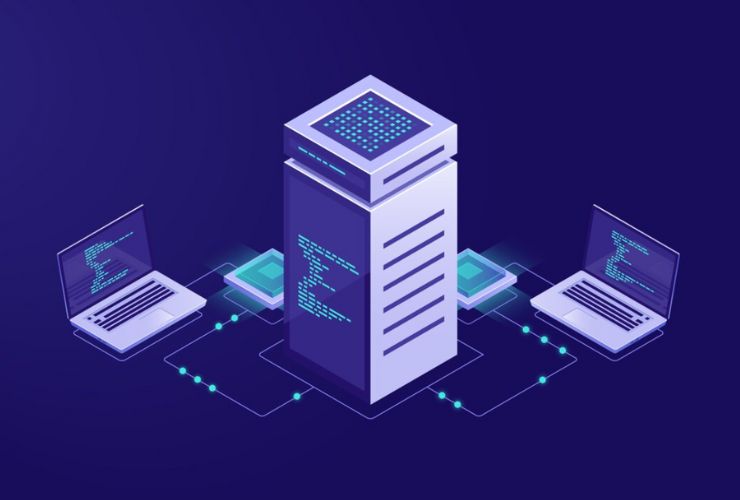When we’re discussing web development, PHP is a most used server-side scripting language. But as sites scale up and traffic gets heavy, PHP performance itself can become the bottleneck and render pages and user experience slow. The silver lining is that there are some steps you can take to enhance PHP performance on the server-side.
In this blog, we shall be discussing real-world PHP performance optimization tips and best practices to improve PHP performance, speed, and decrease server load. Let us discuss how to improve your PHP environment.
1. Utilize the Latest PHP Version
PHP evolves quickly, and each new release of PHP introduces performance improvements, bug fixes, and new functionality. Perhaps the easiest and most effective method of optimizing PHP performance is by using the current stable version of PHP. For instance, PHP 7.x and PHP 8.0+ have provided significant speed improvements over PHP 5.x.
Why it matters:
- PHP 7 and later versions have been said to be twice as fast as PHP 5.
- New features, such as PHP 8’s Just-in-Time (JIT) compilation, accelerate execution on most workloads.
- Being up to date with recent versions also has your site better protected against popular security flaws.
Tip:
Better to test for compatibility first, especially if you have legacy code in the picture. You can anticipate some code changes so that you can move to newer versions of PHP smoothly.
2. Utilize OPcache
OPcache is an integral PHP caching engine that keeps precompiled script bytecode cached in memory and reduces the number of times PHP recompiles scripts per request. Enabling OPcache will drastically improve PHP performance by preventing numerous script compilations.
Why it matters:
- Avoids CPU utilization by caching compiled bytecode.
- Reduces server load and speeds up PHP execution.
- Enhance overall server-side PHP performance without requiring any other code modifications.
Tip:
Verify OPcache is turned on in your php.ini setting file and config it for the best performance.
3. Optimize database queries
Sluggish database queries are mostly the cause of slow PHP app. SQL queries can be the major performance bottleneck if not properly optimized. Index your database tables, don’t use N+1 queries, and utilize well-performing joins.
Why it matters:
- Lagging behind optimized queries have the potential to result in heavy latency and sluggish database response time.
- Query optimization accelerates data retrieval times, hence causing PHP to run quicker.
- Reducing database overhead reduces the number of seconds PHP spends waiting for information.
Tip:
Check and optimize your queries with something such as MySQL EXPLAIN or Query Monitor.
4. Set Caching Strategies
Caching is an excellent way to eliminate server load and accelerate PHP applications. There are numerous caching that you can implement:
- Opcode Caching (for example, OPcache)
- Data Caching (for example, Redis, Memcached)
- Page Caching (i.e., static content full-page caching)
- Caching data upon access or even pages will save considerably the time PHP spends generating responses.
Why it is significant:
- Lowering the PHP load to rebuild content over and over again
- Lessens server load and response time, particularly for dynamic websites.
- Assists scaling your application to cope with more traffic.
Tip:
Use Memcached or Redis to cache database queries or costly computations. Use full-page caching for static pages too to speed up performance even more.
5. Optimize Your Code
Slow PHP code can actually slow down your application. Code optimization is an enhancement of your PHP scripts by using best practices and not using inefficient patterns. Here are some coding optimized PHP tips:
- Avoid redundant loops or too many function calls.
- Use native PHP functions (which are faster) instead of custom code for common operations.
- Reduce memory consumption by using unset() for big variables once they are no longer needed.
Why it matters:
- Cleaner, more efficient code runs faster, and execution time and resource consumption are minimized.
- High-quality code enhances maintainability and scalability as your application grows.
Tip:
Utilize profiling tools such as Xdebug and Blackfire to identify performance hotspots and optimize them.
6. Utilize Content Delivery Networks (CDN)
CDNs do not optimize PHP execution per se, but they significantly enhance site performance by transferring static content such as images, JavaScript, and CSS files. This offloads traffic and load from your PHP server so that it can focus its time on dynamic requests.
Why it matters:
- CDNs store static content on geographically dispersed servers, accelerating the delivery of content.
- Offloading static content lowers PHP server load and enables quicker dynamic content generation.
- Enhances user experience by reducing page load times, especially for users who are far from your main server.
Tip:
Use a good CDN such as Cloudflare or Akamai to deliver static files more efficiently.
7. Enhance Session Management
PHP by default stores session data on the server and inefficient sessioning can result in poor performance with heavy traffic. Centralized handling of sessions or storing sessions in a database would allow you to process sessions more efficiently and put less load on the server.
Why it is important:
- Centralized sessions minimize the number of reads/writes on the server disk.
- Speeds up acquiring sessions and does not hog the PHP script in memory.
- Supports load balancing in larger applications by distributing session data across numerous servers.
Tip:
Store sessions using Redis or Memcached for high performance in distributed setups.
8. Monitor and Profile PHP Performance Regularly
Keep your PHP server’s performance under surveillance for detection of possible performance bottlenecks and problems at the right time. Profiling and monitoring software has to be used to observe PHP’s performance in real-time.
Periodic monitoring will detect slow scripts and other performance problems easily.
Profiling tools give you detailed information about the performance of your PHP code and where you should optimize.
Tip:
Profile and benchmark PHP performance with tools such as New Relic, Xdebug, or Blackfire.
Optimizing server-side PHP performance is a combination of having the latest PHP version, optimizing code, and using efficient caching mechanisms and tools. With these approaches, you are able to significantly enhance the speed, responsiveness, and scalability of your PHP applications, ultimately resulting in improved user experience and conversion rates.
Regularly monitor your server’s performance, test optimizations, and ensure that your codebase remains efficient. By implementing these practices, you’ll be well on your way to a faster, more efficient PHP environment.
Contact Us Today













 Database Development
Database Development












































